The sleepy Norfolk village coming to terms with its boutique rebranding

The wind howled down Holt Street, Langham’s main drag, whipping leaves into autumn tornados. Above, two geese seeking warmer climes struggled to stay their course, but at ground level there was not another soul in sight. It was Friday afternoon and to my left and right, set back from the road, a few – but not all – houses began to turn on lamps, light fires. I knew this small North Norfolk village would be quiet, but I did not expect silence.
A mile in from the North Sea coast, Langham is just behind the frontline of Norfolk’s famed seaside destinations – Brancaster, Wells-next-the-Sea, Blakeney – and as such is relatively little-known. But, like some of its county counterparts in recent years (Burnham Market – or according to its new and derogatory nickname, Chelsea-on-Sea – is just 20 minutes’ west), its stock is rising and this parish of no more than 400 residents has in its tea leaves the title of one of England’s most fashionable escapes.
This is in part down to the growing allure of Norfolk’s centuries-hewn charm, but mostly thanks to a new hotel, the Harper. Named one of the “Top 50 Boutique Hotels” the day before I arrived, the Harper is the brainchild of hotelier Sam Cutmore-Scott, better-known to the tabloids as the husband of Chelsy Davy, Prince Harry’s university girlfriend.
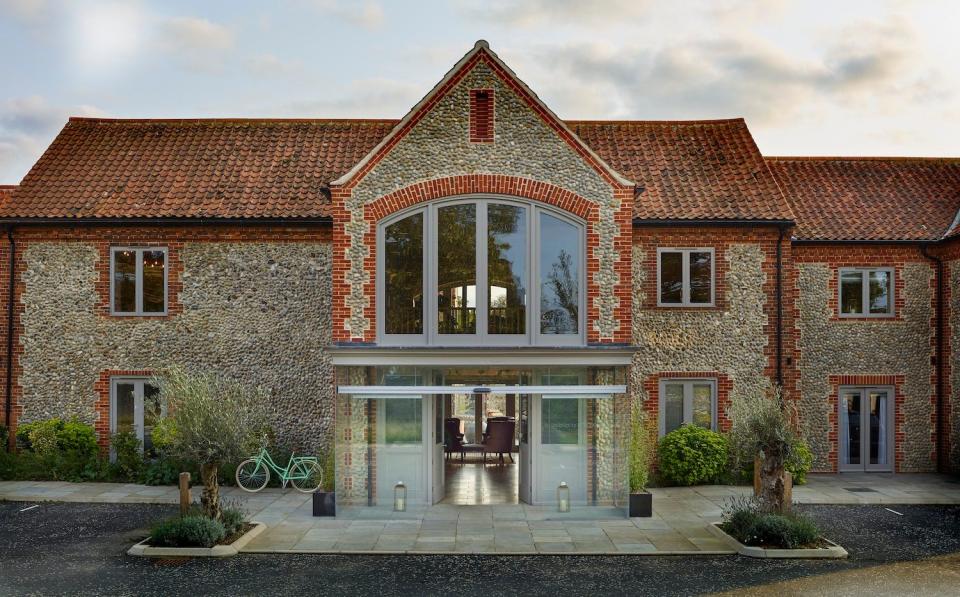
Opened in the spring of 2021, delayed the obligatory year by the pandemic, the Harper has quickly established itself as something of a must-visit for London’s well-heeled and fashionable; in my research, Soho House’s offering was a regular bedfellow.
But what piqued my interest was not the apparent success of the hotel, but the fact that this year Cutmore-Scott has bought not just one local pub, but two. The Harper collection now includes Langham’s own Blue Bell as well as the Morston Anchor, in the next village over.
Even for a strip of British coastline increasingly subjected to an onslaught of boujification, a boutique hotel taking over two village boozers seemed bold.
“It’s important for us, important for our guests, and important for the local communities that they have these places they can gather,” explained Cutmore-Scott. He said the purchase of the pubs was not part of the business plan, but after the owners of the Blue Bell signalled they were ready to give up, brow-beaten by Covid, Cutmore-Scott saw an opportunity.
“They’re not going to be game-changers on the results side, but our guests always want to know where they should go for a pint and it was getting to the point that we didn’t really have anywhere to tell them.”
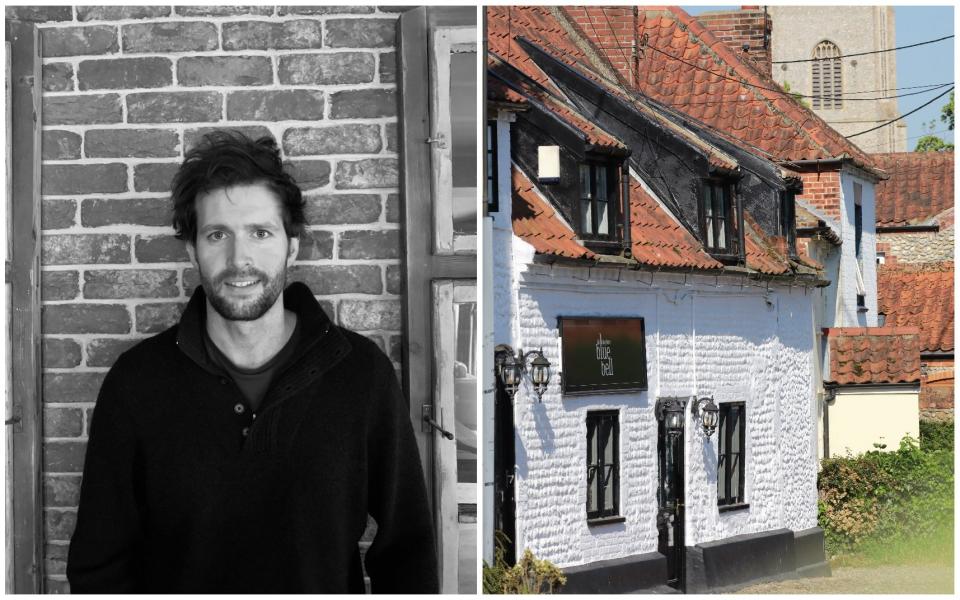
The Blue Bell, a charming, low-ceilinged pub with an open fire, opposite the village sign, offers typical beer-fare, but food of a higher quality in a set menu not dissimilar from that on offer in the hotel. The Morston Anchor, on the other hand, is focused on a coastal delicacy of fish and chips, but fancy, of course. Both have been freshly licked in a dark marine blue that links them back to their parent establishment.
It was to the Blue Bell I battled against the wind. Inside, two workmen had finished early for the day, but otherwise, it was as quiet as the high street. I ventured back later for dinner, which was exceptional (I had a peppery venison carpaccio followed by the Brancaster catch of the day, a sizable salmon fillet topped with a chorizo crust), but it was no busier. The waitress offered her surprise, especially given she understood the Harper was full. “It is normally busier on a Friday, Saturday.” Do locals come in for a pint, I asked. “They do.”
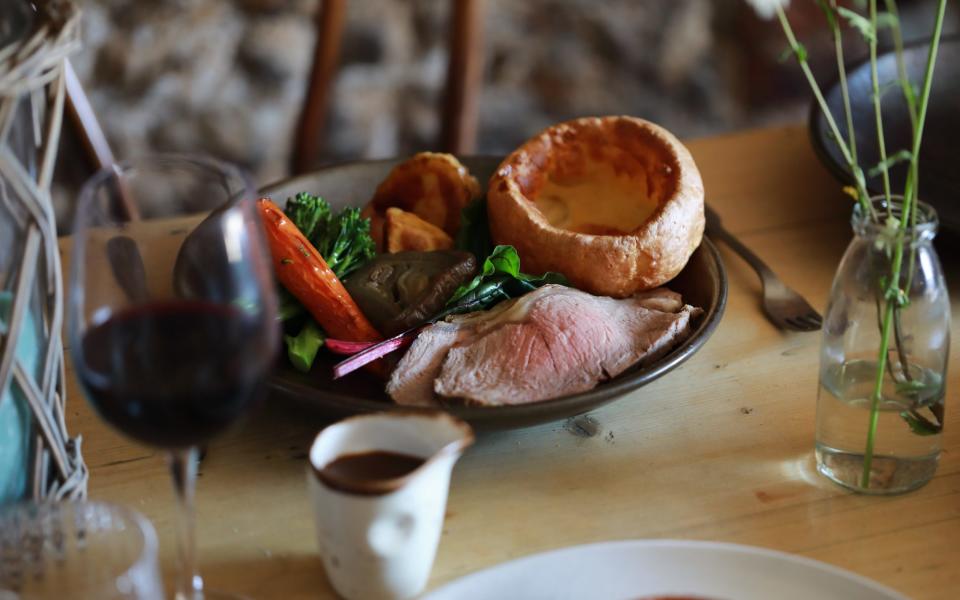
This is of course on the way to the heart of the matter. There are running battles up and down the country in rural postcodes watching the sun set on old industries, a dying way of life: communities diluted by absentee second homeowners, rising house prices freezing out younger generations, once-buzzing villages stripped for parts for the summer hordes.
For the Harper’s part, though the Parish Council objected to the 2019 planning application submitted for change of use – turning the traditional brick-and-flint barns housing a glass factory into the hotel of today – citing the impact on “the sustainability and cohesion of the local community”, Cutmore-Scott says relations with the village as a whole have improved since opening. Indeed, it was reported that the former chair of the parish council, Paul Godfrey, met the couple over a coffee to discuss parking issues at the hotel.
“North Norfolk is not somewhere naturally embracing of change,” he said. “But if you stick at it, behave well, try to ignore frustrations… I think it’s a question of time passing. Both villages are pleased to have the pubs open, it may not be the precise form or offering they would have done themselves.”
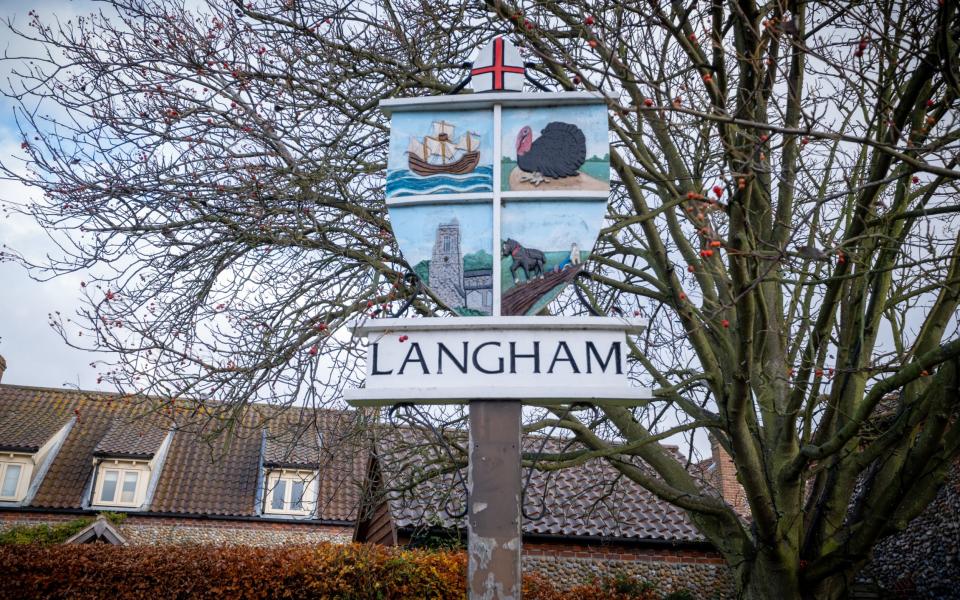
This is a sentiment echoed by Jonny Miller, Managing Director of Langham Glass, the company that occupied the site of the Harper before outgrowing the premises and moving down the road to Fakenham.
“It was not practical to stay there. The infrastructure could not support us year-round,” he said. “Our visiting coaches would get stuck in the roads in the winter so we had to make enough in summer to survive through to the next tourist season.
“I think [what the Harper is doing] is brilliant for the village. There will always be locals resistant to change – it is the same arguments when we opened in Langham in 1979 – but what is the alternative?”
Norfolk is an agricultural county. It remains so today, as evidenced by the patchwork of fields that surround Langham. It does not take an economics degree to understand that modern farming does not support local economies the way it used to, so a new business is needed.
Notwithstanding the arguments of what should become of places like Langham, The Harper is an excellent hotel, smart enough for city types but with a gentle rusticity. Staff are attentive, friendly and genuinely caring of your experience. The span of in-house restaurant, bar, snug and lounge area cater for an encompassing relaxation and the details, such as a complimentary minibar and homemade cookies in the room on arrival do make a difference.
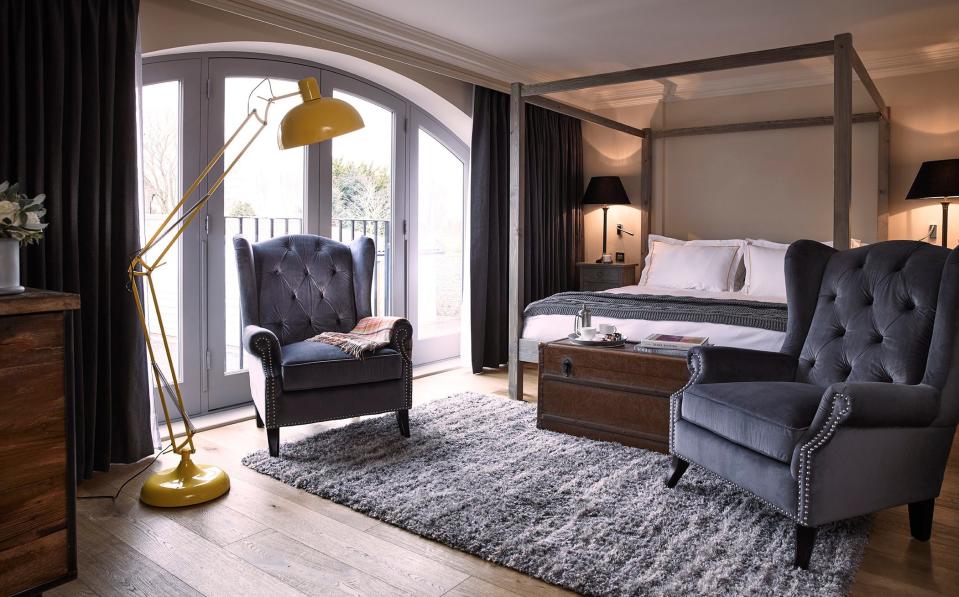
The food at Stanley’s, its restaurant, as at the Blue Bell, far surpassed expectations and was good as anything I’ve had at any hotel (a starter of “crispy lamb” had something of a Willy Wonka charm to it, a world in textures, while the cote de bouef for main – though it did not need the accompanying Eve’s Hill leaves – was beautifully cooked). The spa and pool area is small but guests book for exclusive half-hour slots (a hangover from the pandemic) so its size is mitigated and there is something luxurious about having the pool and hot tub to yourself.
All of the above is only available to guests – resident-only, it is described – a move intended to cut down on traffic around the Harper and Langham, but Jules Keirle, hotel manager, says trials to open Stanley’s to locals have had slow but steady progress.
This will prove to be the next challenge when the Harper expands into its vacant neighbour, Langham Hall, a Grade-II listed, 8,000 square feet property it purchased this year and which will double the hotel’s size and add treatment rooms, more beds and an expansive lawn with an as-yet undetermined function.
Keirle says once operational, these sorts of facilities would lend themselves to a membership offering, which would open the door to greater village integration, but this is unconfirmed and some years away.
What is clear is that the Harper is here to stay; what becomes of Langham remains to be seen.


